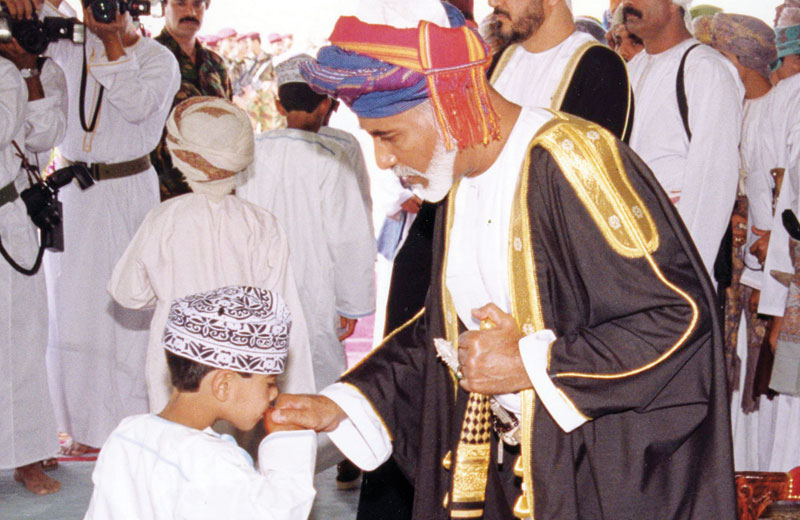


Houchang Hassan-Yari -
The success or failure of political leaders is manifested in the degree of satisfaction of their people for the service they render to their people. A good leader is one who creates the mental and material security of his people. A person worthy of this title of leader is capable of bringing positive and fundamental changes to his country. His Majesty Sultan Qaboos is worthy of this title.
His charisma during his lifetime and the deep collective sadness of his death testify to the love of his people and the boundless respect of the international community for him.
After close to 50 years in power, the question everyone is asking now is: What legacy His Majesty Sultan Qaboos has left behind?
In this short tribute to the Leader and his achievements, we try to recall some of his accomplishments. Describing in detail five decades of indefatigable efforts is impossible in a text like this. Here we try to summarise very few success stories of a colossal and rich heritage of His Majesty Sultan Qaboos.
A modern leader
Under the leadership of His Majesty Sultan Qaboos, Oman has entered into the modern era. He was a nation builder through his inclusive approach and progressive vision.
His Majesty Sultan Qaboos succeeded in consolidating the territorial integrity of Oman and securing its national borders within which the effort to assure the economic development of the country and securing a better future for his people became an attainable goal. As it is often the case in so many parts of the world, the security was the precondition for the construction of a modern state in Oman. Once the state solid apparatus was established, His Majesty Sultan Qaboos began to build its modern institutions. The creation of a well-trained armed forces institution was necessary to protect the country and the state’s sovereignty.
In order to strengthen the achievements of the glorious renaissance, launching modern ministries became indispensable. Their creation was destined to take care of different aspects of a growing complex public life. The orderly and incremental evolution of the country political life rendered the creation of both Majlis Ash’shura, the lower house, and State Council, the upper house. The main role of the two institutions is to enlarge the society’s participation in the decision-making process.
These are just few examples of the institutionalisation of the foundations of power and national sovereignty in a fast-developing country. They were created to meet the needs of an emerging modern society.
No society would be able to develop its potential in the absence of solid, efficient and functional institutions. With his clear vision of what Oman of tomorrow should be, His Majesty Sultan Qaboos has developed institutions as Omani society was changing.
Economic development
Oman is an oil producer country. Its reserves and production are very low compared to neighbouring countries. Despite its modest energy resources, what Oman has managed to achieve is utterly remarkable.
The sound management of oil revenues has made possible the development of social programmes which are very beneficial for the citizens of Oman. What Oman has accomplished in the fields of education and health is phenomenal. In these two areas, to name but two, coverage is universal and free despite the volatility of oil prices and instability on the international market. In education, His Majesty’s strategy was to build a solid knowledge-based economy through a modern education capable to improve Oman’s human capital and development.
From the first education reform in 1976 to the Vision 2020, Oman allocated significant financial resources and invested considerable efforts in its human resource development as the engine of its economic growth.
Today, Omanis enjoy a much better quality of health and education than ever before. Access to clean water and electricity is reliable in an arid country.
According to the International Monetary Fund, Omani per capita income has improved considerably compared to the situation that existed previously and to the overall situation in the Middle East, going from $4,674 in 1980 to $24,024 in 2015.
Peacemaker
In the field of international relations, Oman is a great power despite the small size of its population and its economy. Oman has succeeded in establishing itself as an indispensable mediator in some very important files for international peace and security.
The towering personality of His Majesty Sultan Qaboos was trusted by states and non-state armed groups and had made Muscat the obligatory passage for those who sought to solve complex and intractable international problems through diplomacy.
The principles of Oman’s foreign policy such as active neutrality, negative equilibrium, non-interference in the internal affairs of other states had given Oman credibility which is recognised by all states. Oman has maintained its foreign policy independence under conditions that have not always been easy.
The immense sadness that his death caused around the world and the massive presence of the Omani population and foreign dignitaries at his funeral demonstrate their deep respect for His Majesty and Oman. The testimony of collective respect seen since January 10 is also the celebration of the life and achievements of a great man who was a luminary at the time of his death.
The writer is Professor and Head of Political Science Department, Sultan Qaboos University.
houchang@squ.edu.om
Oman Observer is now on the WhatsApp channel. Click here



